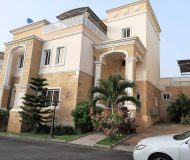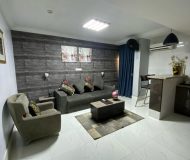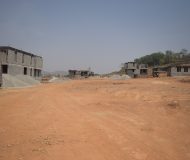
Navigating Homeownership in Nigeria
The dream of owning a home in Nigeria faces considerable challenges, ranging from political policies and high inflation rates to limited accessibility and imposing interest rates from lenders. In a nation where homeownership is currently pegged at a mere 10%, compared to 72% in the US and 78% in the UK, the hurdles of rising construction costs, soaring land prices, and exorbitant financing expenses make purchasing a home increasingly elusive for middle and low-income families.
Mortgages in Nigeria:
In Nigeria, mortgages have traditionally been pursued predominantly by real estate developers and investors due to the substantial funds they provide and the extended repayment structures they offer. However, with homeownership becoming an increasingly distant goal for many, understanding mortgages becomes crucial for those navigating the complex terrain of property acquisition.
Understanding Mortgages:
A mortgage is essentially the transfer of ownership of a property from a borrower (homeowner) to a lender (Mortgage Bank) as security, with the understanding that the property will be re-transferred to the borrower upon complete repayment of the mortgage. To embark on this journey, individuals must fulfill certain requirements, including an assessment of their monthly income, expenditure, existing debt profile, and the value of the property they seek to finance.
Steps to Secure a Mortgage in Nigeria:
- Save a Deposit:
Before venturing into homeownership, potential buyers must save a deposit. Property owners and financing institutions typically require a certain percentage as a deposit to initiate the loan process. - Explore House Buying Schemes:
Engaging in national housing funds or other housing schemes tailored to provide financial solutions can be advantageous. These schemes, like the National Housing Fund (NHF), are designed to assist contributors in securing flexible financing options. - Demonstrate Loan Repayment Capability:
Prospective homeowners need to assure financing institutions of their ability to meet long-term loan commitments. This involves assessing current income, subtracting monthly expenses, and determining a feasible monthly mortgage contribution. - Identify Suitable Properties:
Not all properties are eligible for mortgage financing. Buyers must identify properties that are readily available and align with mortgage facilities. - Obtain a Mortgage Loan:
With a property selected, a deposit saved, and proof of long-term payment capability, individuals can proceed to apply for a mortgage loan. This involves signing an agreement with accredited mortgage banks, of which there are over 30 in Nigeria.
The National Housing Fund (NHF):
The NHF, a scheme created by the Federal Government and administered by the Federal Mortgage Bank of Nigeria (FMBN), offers Nigerians access to low-interest housing loans. Contributors, mandated to contribute 2.5% of their basic monthly salary, can utilize the NHF for various housing needs, including purchase, construction, renovation, or expansion.
Read also: Dangiwa commits to transforming the housing sector
Required Documents for NHF Loan Application:
- Completed application form
- Photocopy of title documents
- Current valuation report on the proposed house
- 3 years tax clearance certificate
- Evidence of NHF participation (Minimum of 6 months)
- Copy of payslips for the previous 3 months
- Equity contribution
Read also: Empowering Low-Income Individuals to Achieve Homeownership
Owning a home in Nigeria through a mortgage is a viable path, albeit one that requires meticulous planning, financial discipline, and adherence to specific criteria. With the availability of various mortgage banks and schemes, including the NHF, prospective homeowners can overcome the financial hurdles and turn their dream of homeownership into a reality.





